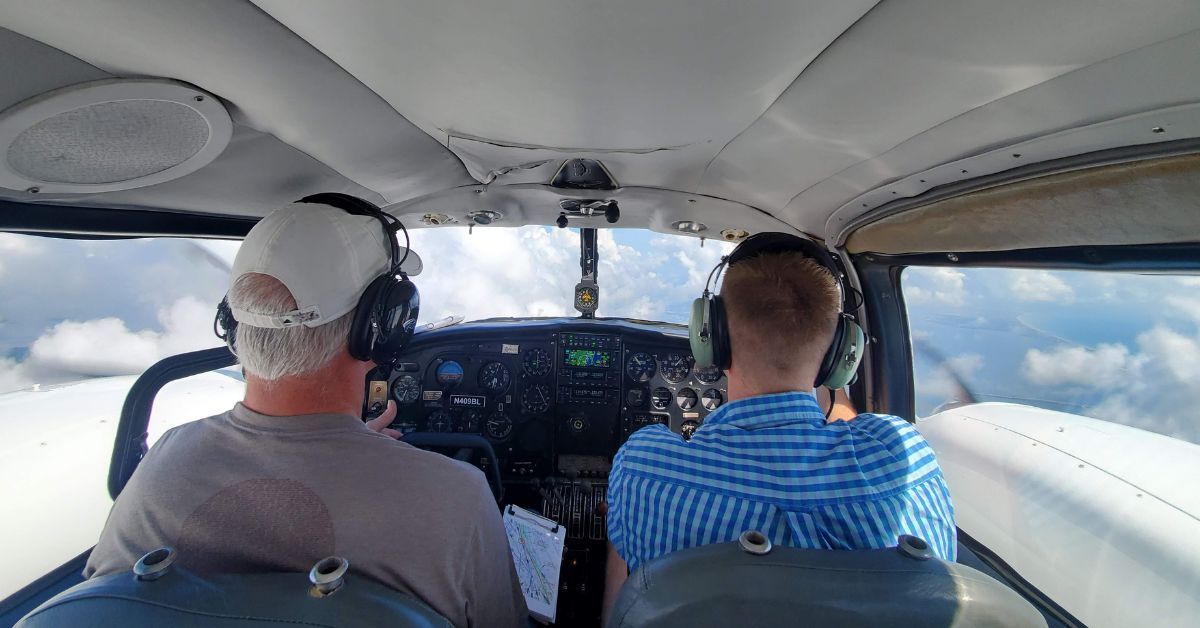Exploring the Path to Becoming a Corporate or Charter Pilot
Becoming a corporate or charter pilot offers unmatched opportunities to fly versatile missions, enjoy unique destinations, and experience rewarding professional paths. The path to becoming a corporate or charter pilot appeals to those with a passion for aviation, as it combines technical expertise with excellent interpersonal skills. Corporate and charter pilots typically operate smaller aircraft than airline pilots and work more closely with clients. Whether flying executives to key meetings or transporting families on private vacations, the role demands adaptability and professionalism.
Understanding the Role of a Corporate Pilot
A corporate pilot is responsible for flying private jets for companies, executives, or high-net-worth individuals. These pilots must manage all aspects of flight operations, including pre-flight inspections, route planning, and passenger coordination.
Given the bespoke nature of corporate aviation, pilots often work irregular hours and visit diverse destinations. While challenging, the role provides autonomy and satisfaction, as it offers varied and exciting flying experiences. Building a relationship of trust with passengers and demonstrating exceptional communication skills are also integral to excelling in this field.
What Sets a Charter Pilot Apart?
Charter pilots perform similar functions to corporate pilots but operate under a different business model. Rather than working exclusively for one client or company, charter pilots are associated with an air charter operator, providing flights on demand. Often, these flights are for clients seeking flexible travel options and non-scheduled services.
Charter pilots, therefore, must adapt quickly to changes in schedules and routes. They may transport vacationers looking to explore remote locations or deliver time-sensitive cargo across the country. The diversity of missions and passengers makes this an exciting field for pilots who thrive in dynamic environments.

Mapping the Required Qualifications
To step into either role, aspiring pilots must obtain appropriate certifications and meet stringent regulations. The Federal Aviation Administration (FAA) governs the qualifications for pilot licenses in the US. Pilots need at least a Commercial Pilot License (CPL) to operate aircraft for hire.
Many employers also require an Airline Transport Pilot (ATP) certificate along with flight hours logged in specific types of aircraft. Additional ratings, such as multi-engine or instrument ratings, may be necessary depending on the mission or aircraft type. Advanced training in customer service and strong teamwork skills can further enhance your desirability.
Navigating Flight Training
Flight training is the first step in becoming a certified pilot, and quality instruction plays a pivotal role in shaping a pilot’s career. Aspiring pilots typically begin their training with private pilot lessons, progressing through instrument and commercial certifications. Many flight schools offer specialized training programs for students pursuing careers in corporate or charter aviation.
These programs may include multi-engine aircraft simulations and real-world scenarios to prepare pilots for diverse missions. If you are considering an aviation career, taking accelerated flight training can provide hands-on experience with stunning landscapes and varying weather conditions.
Choosing Between Corporate and Charter Aviation
Deciding between corporate and charter aviation depends on your professional aspirations and personal preferences. Corporate pilots often enjoy greater opportunities for relationship building and long-term stability, as they typically work for a single employer.
On the other hand, charter aviation offers varied missions, wider exposure to different clients, and a more flexible working environment. Both paths require dedication, a commitment to ongoing training, and a passion for delivering an exceptional flying experience. Evaluating your interests and preferred working style can guide your choice.
The Importance of Certification Upgrades
Continuous development and certification upgrades are essential for staying competitive and compliant in this field. For instance, charter operations require pilots to have FAA Part 135 certification, which governs non-scheduled commercial air transport. Similarly, corporate pilots may need to qualify for specific type ratings in order to operate high-performance jets, such as the Gulfstream or Bombardier series. Staying updated on regulatory requirements and technological advancements ensures your employability and ability to adapt to the evolving aviation landscape.
The Growth of Private Aviation
The private aviation industry is growing rapidly, driven by an increased demand for flexible and personalized travel options. Corporate clients value time efficiency, while families and individuals enjoy exclusive experiences. This growth has created ongoing demand for qualified pilots who can deliver top-notch services. Advances in aircraft technology, safety, comfort, and performance further influence this trend. Pilots entering the sector can expect career stability and opportunities as they gain experience and build client trust.

Career Opportunities Beyond Becoming a Pilot
A career as a corporate or charter pilot can be a gateway to broader opportunities in aviation. Experienced pilots may transition into flight training, sharing their skills with the next generation of aviators. Opportunities in operations management, safety oversight, or consulting also allow pilots to leverage their expertise without being in the cockpit full time. If you’re passionate about aviation advocacy, roles in regulation or corporate planning can provide new career trajectories while positively influencing the industry.
The Community of Aviation Professionals
Being part of the aviation industry means joining a community of dedicated professionals united by their love for flight. Corporate and charter pilots often collaborate closely with dispatchers, flight attendants, maintenance teams, and ground staff. This interconnectedness reinforces the importance of excellent communication and teamwork.
Whether attending industry conferences or connecting through online forums, pilots exchange knowledge and support one another. By fostering these relationships, aspiring and seasoned pilots strengthen their professional networks and contribute to the aviation community’s growth.
Preparing for Future Careers in Flight Training
The path to becoming a pilot not only paves the way toward a career in the skies but also cultivates the necessary skills for future success in related fields. Growing demands for flight instructors, particularly as the aviation industry experiences a pilot shortage, provide people with an additional avenue for career growth. Entering the realm of flight education gives experienced pilots the chance to mentor others, passing on essential knowledge and ensuring the industry continues to flourish. Many schools offer programs allowing current pilots to become certified instructors, enabling dual career paths.
Elevate Your Future in Aviation
The path to becoming a corporate or charter pilot is demanding, but it is equally rewarding. This career promises endless opportunities for travel, professional recognition, and personal satisfaction. Whether you’re drawn to corporate aviation’s exclusivity or charter flying’s dynamic nature, both options allow you to positively impact clients’ lives. The aviation industry, marked by innovation and growth, continues to invite driven individuals to explore their potential in the skies. With commitment, training, and the desire to excel, the dream of becoming a professional pilot is well within reach.
Final Thoughts
Pursuing a career in corporate or charter aviation requires determination, adaptability, and a keen interest in mastering the craft of flying. From earning certifications to handling state-of-the-art aircraft, every step of the process shapes resilient and skilled professionals.
The opportunities in this field extend far beyond flying, creating a career that’s as versatile as it is inspiring. Are you ready to take the first step? Explore Arapahoe’s flight training programs, connect with established pilots, and consider how you want to leave your mark in the aviation world.
